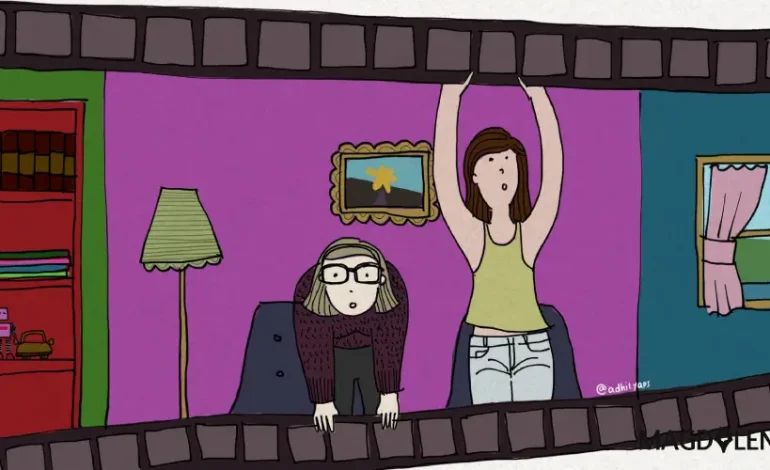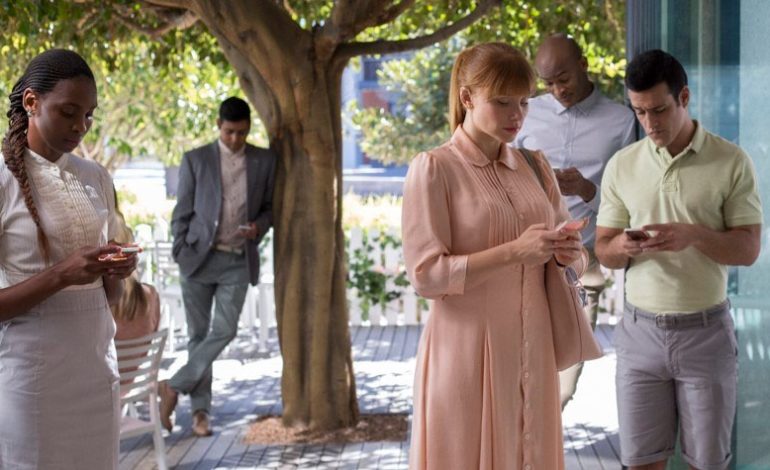“Frame and Sentences” YouTube Channel Tackles Crucial Issues in Indonesia

These days you can find all sorts of Indonesian YouTubers, from travel vloggers, makeup tutorials, to those specializing in pulling pranks. While these videos might be entertaining – addictive even – there’s more to life than on-point makeup or adventurous travel or silly stunts.
Enter Frame and Sentences, a YouTube channel created by two Indonesians currently living in the United States. The peeps behind this channel are graduate student of public policy at Harvard University, Andhyta Firselly Utami (Afu) – who is also a repeat contributor to Magdalene – and her husband, part-time video editor at a non-profit organization focusing on education issues IniBudi.org, Wikan Anantabrata (Wikan).
In their vlogs, the couple discusses wide-ranging issues from how it feels to have an intelligent, more educated wife to the controversial revision of the Criminal Code. Some of their videos are personal, but essential and vibrant, while some others sharp and scrupulous when tackling serious issues.
Magdalene has the opportunity to do an email interview with both Afu and Wikan, who are currently living in Cambridge, USA.
The pair, who are both in their mid-20s, explained that the channel was initially a project to channel their thoughts and creativity. It is “a marriage” of what they are “respectively ‘somewhat’ good at, making videos (frame), and putting words together (sentences).”

“We’re both surprised that the responses had been extremely positive so far!” Afu said. “I’ve been told so many times that we need to ‘dumb down’ our content because nobody wants to watch a serious video. But after six months, I’m proud to say that our decision to ‘elevate’ the discussion had been the right one. I think our audience also noticed this conscious choice and appreciated us for it. They’re the reason we keep making videos.”
“There had also been people who disagree with some of the things we say, but it’s exactly why we created the channel! We want people who disagree with us to come out and give their own arguments rationally. Basically we want to shift the ‘method’ and ‘perception’ of disagreement from hateful commentaries on social media to a more productive discussion,” Wikan added.
Both mentioned that the channel was “a more productive way” of reacting to common Indonesians’ problems that “triggered” them, but the channel eventually turned into a space to exchange ideas.
Afu said that in their first video, “What Is the Ideal Age to Get Married”, she was basically “ranting about how Indonesian society puts too much pressure on women and treating ‘marriage’ as this sacred goal instead of an option.”
“However, after the first few videos gained quite some attention, around 15K views each, we realized we could play a bigger role to prompt people to be more critical and open about the social issues around them. But since we’re no experts, we simply think we could be the ‘first thrower of snowball’ so more people could join the discussion and take it even further,” Wikan elaborated.
They admit that they both have long discussions before deciding what to talk about in the channel, taking into consideration the trending as well as least discussed issues.
“In the end, we settle on balancing between the two. For example, our video on ‘Rusuh LBH’ responded immediately to the event, while “Kenapa Caper sama Orang Bule” was driven by a brainstorming process with a friend,” Wikan said.
Asked about their language choice, as they sometimes switched from English to Indonesian between videos, Afu admitted that it had been a challenge especially for her, as she was used to expressing complex ideas in English more fluently.
“Everyone’s main criticism so far is about how the use of English in some of our videos might limit certain demographics in Indonesia from accessing our ideas. I agree with them completely, but the issue here is that I’m not as good of a speaker when I use Indonesian. Probably because I grew up joining debating clubs and model United Nations in which English is my primary language for discussing complex ideas. Wikan, meanwhile, was raised in a family that uses perfect Indonesian on daily basis and, therefore, more comfortable with that,” she said.
They aim to eventually produce full Indonesian-spoken videos but for now they compromise by providing Indonesian subtitles in all of the English videos.
“The long-term goal, though, is for both of us to use Indonesian and make the video more accessible to Indonesians in their productive age, with subtitles in English for the international audience who might be interested,” he added.
So which one is the creators’ favorite video from the channel so far? The two agreed it was the episode “On History!”
“While it’s one of our most under-appreciated videos, it’s the one video where we took our time in the production process,” both said in their email replied, recalling how Afu developed the script with a spoken word approach, while Wikan explored his creativity as a video editor in the making of the video.
“Although Wikan hated the bad font choice, we think the topic will be relevant for a long time,” Afu added.
Subscribe to their channel, Frame and Sentences, and follow them on Twitter @frame_sentences for latest updates.
Find out what issues this year’s Indonesian Women’s March focuses on.






















